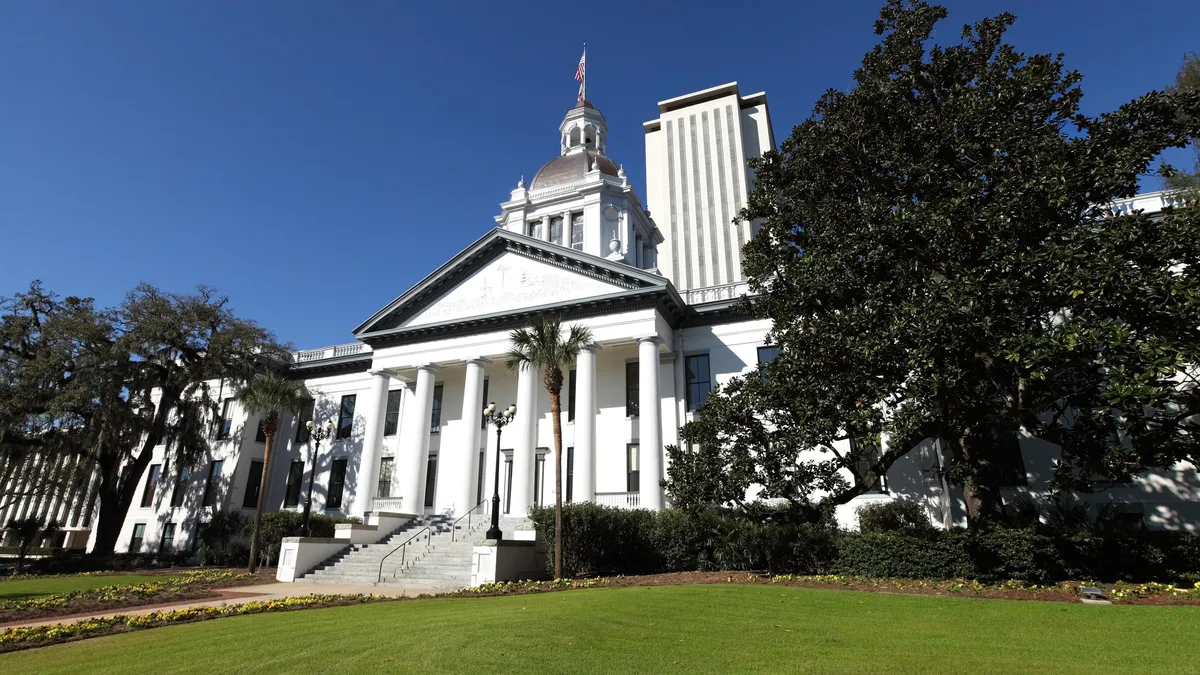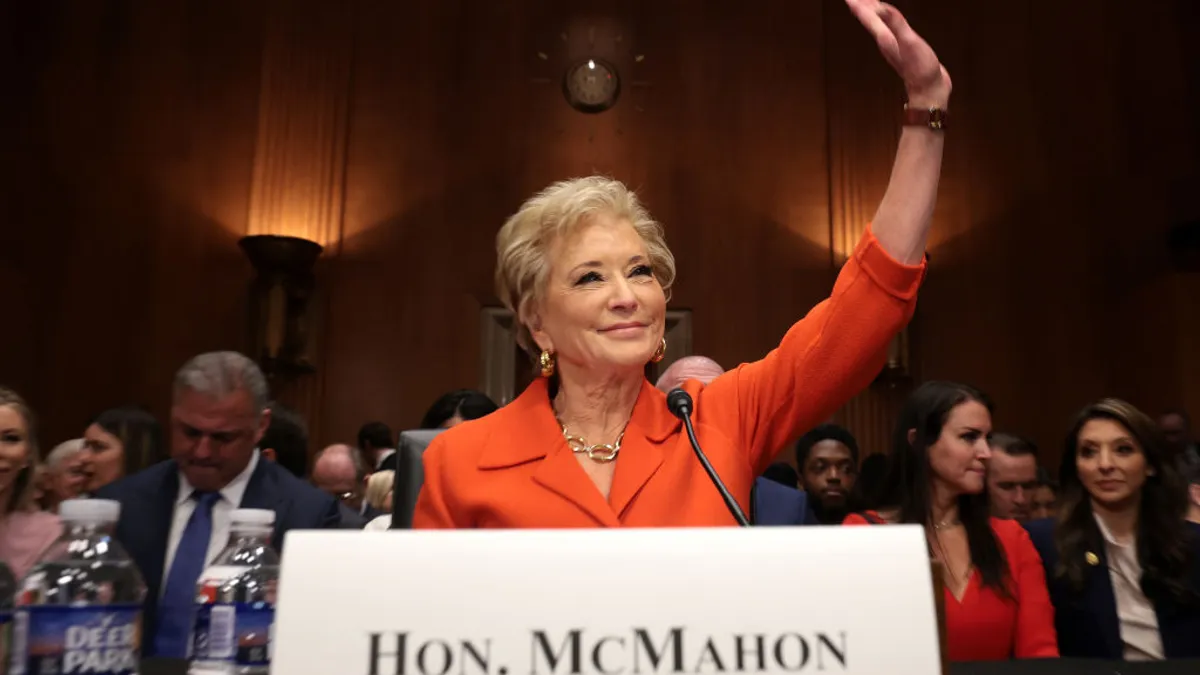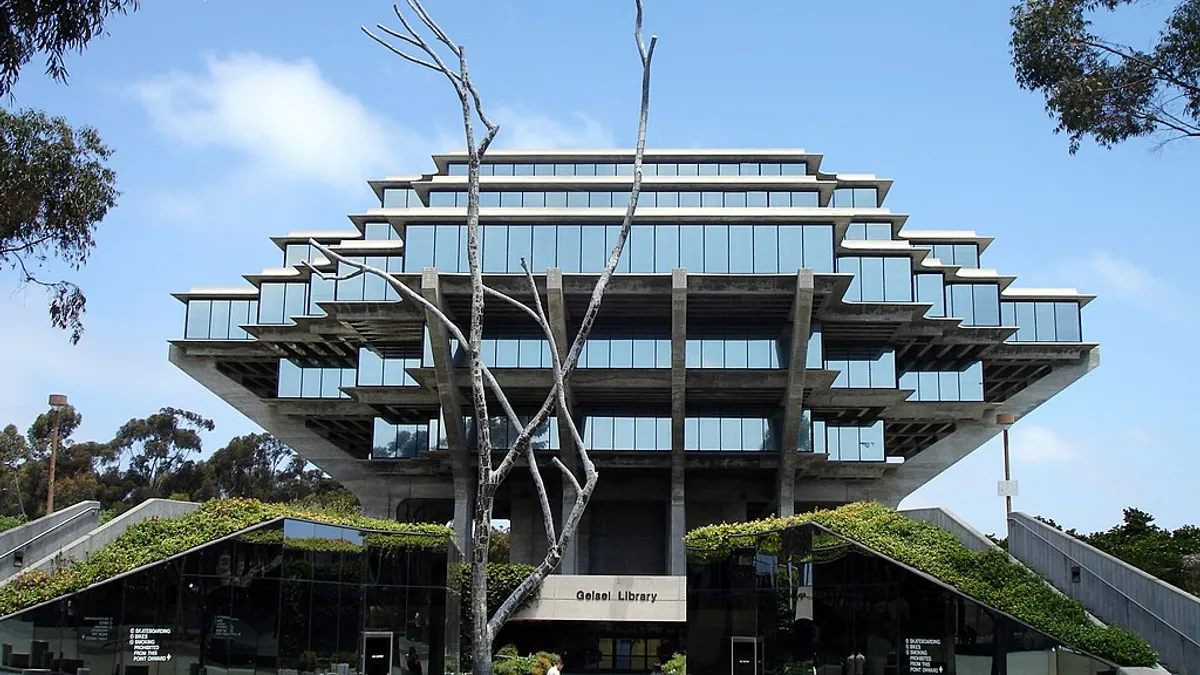Dr. Mildred García is president of the American Association of State Colleges and Universities.
The latest arguments over what should be taught in America’s colleges and universities are fraught with irony.
Over the past few years, dozens of legislators have called for new laws to smother campus discussions of race, ethnicity and gender.
The lawmakers filing these bills level claims that higher education institutions and their faculty are silencing certain voices, attacking certain values and ignoring certain perspectives. These lawmakers argue that they are champions of liberty and defenders of the public welfare. Yet these “freedom” initiatives are changing curricula and telling college professors what they can and cannot teach.
Academic freedom — the freedom for college faculty to teach, speak, discuss, research and publish in their academic fields free of interference from lawmakers, trustees and others — has come squarely into legislative crosshairs.
This concept gives faculty the freedom to explore significant and controversial questions that allow them to fulfill higher education’s mission of educating students and advancing knowledge. With this freedom comes responsibility, as faculty are required to ground their arguments in the best available evidence and submit their claims to rigorous review by their peers.
Academic freedom is more than just the protection of faculty rights. It’s crucial that faculty and students are free to follow truth wherever it might lead because scientific breakthroughs depend on the unfettered pursuit of knowledge. It’s also important to a healthy society that students be taught to debate controversial ideas respectfully and in good faith. Academic freedom is part of the bedrock of free expression that promotes a robust civic discourse and strengthens our democracy.
Ongoing assaults on academic freedom and free expression threaten to stifle intellectual life on campus and erode higher education’s mission of creating independent thinkers who can participate fully in the civic life of this great country.
These attacks must cease.
Academic freedom has been a critical component of higher education in this country for more than two centuries. It evolved in this country from the notion that colleges and universities were autonomous institutions, free to teach what they wanted and act how they chose.
University independence — and academic freedom — have been under fire ever since. The Civil War, World War I, the Red Scare of the early 1950s and the September 11th terrorist attacks: These and other pivotal moments of American history prompted crackdowns on academia and academics.
Academic freedom now finds itself caught between lawmakers looking to pick culture war fights and a public whose attitudes toward higher education have grown increasingly sour.
Since 2021, legislatures in at least eight states have passed what PEN America, a nonprofit that defends human rights and free expression, called “educational gag orders” that restrict what public universities can teach, what their students can learn, or what type of training they can conduct. As of May 24, bills were pending in roughly a dozen states that would ban public higher education institutions from teaching, encouraging or promoting certain ideas related to race or sex.
These assaults are shaking American higher education. Attempts are being made to bar discussions of racial injustice and related topics that might trigger feelings of guilt or psychological distress in listeners. The latest legislative salvo goes even further: It strips funding from diversity and inclusion programs at state colleges and universities.
What made these latest attacks on academic freedom so troubling is not just that they are relentless and overwhelming, though they are both of those things. And it’s not that government leaders are going after higher education to protect this country from an external or imminent threat.
Rather, it’s a concerted attempt to stamp out discussion of American history and other subjects in the name of protecting college students and the larger public from politically charged and allegedly divisive concepts. Public institutions have a special role in preserving academic freedom and free expression, given that they are publicly funded and are obligated to uphold the First Amendment. Now, they are being put in an untenable position of having to tell faculty and students that they are no longer free to teach and learn about certain topics.
In addition, the nation’s colleges and universities are much more diverse places than they were a generation ago. These recent attacks on curriculum send a message that certain ideas — and certain people — are no longer welcome. These assaults threaten to undermine these hard-fought and long-overdue gains in college access.
It’s vital that faculty and students in postsecondary institutions are free to teach, research and discuss gender, race, racism and other topics of public interest. These are not merely academic exercises. These are lessons and conversations that acknowledge and respect the humanity and shared experiences of all of our students.
Academic freedom is a core American value. We must defend it — unequivocally and without exception.





















